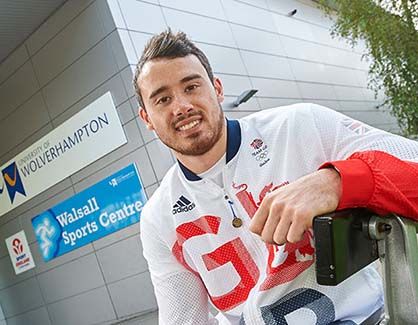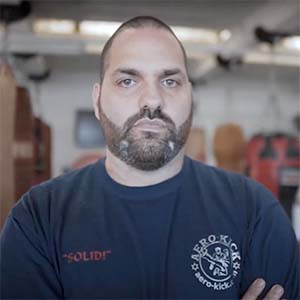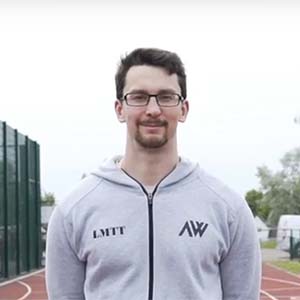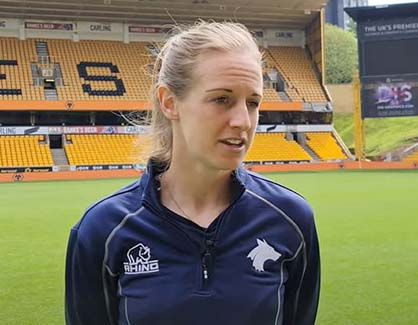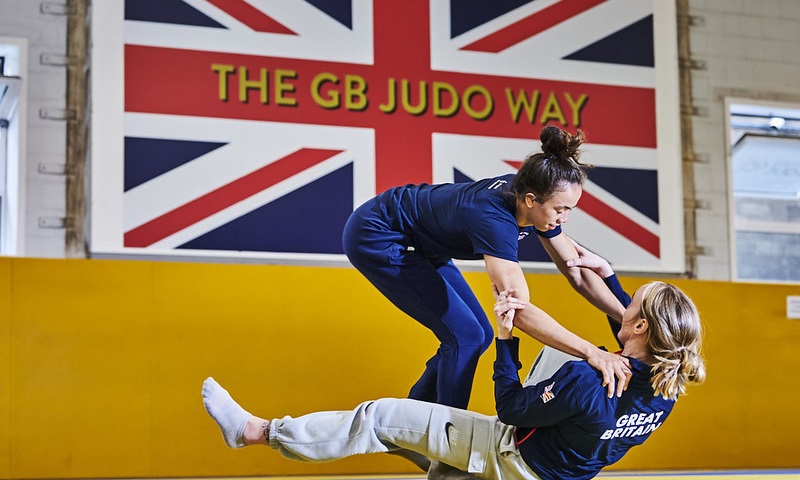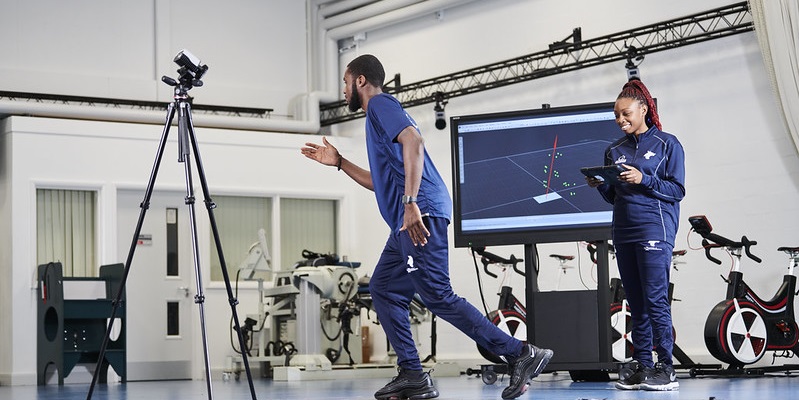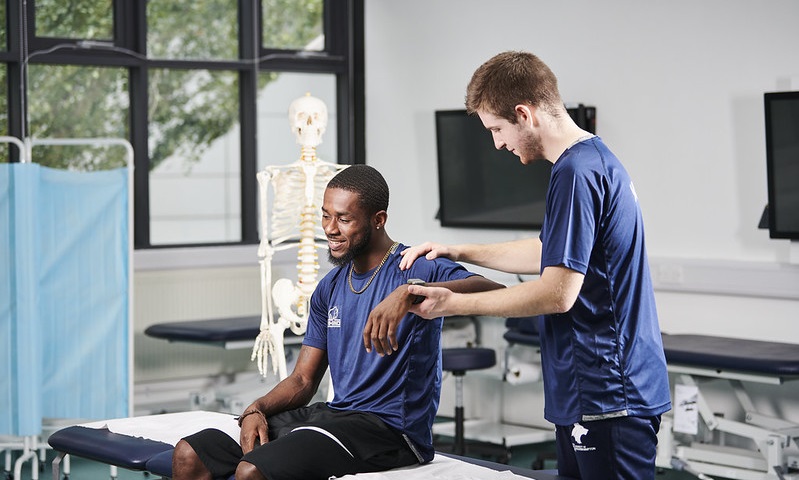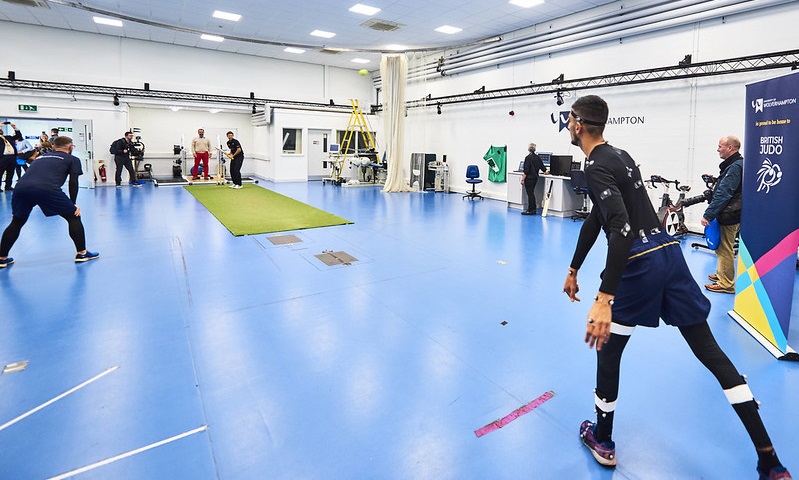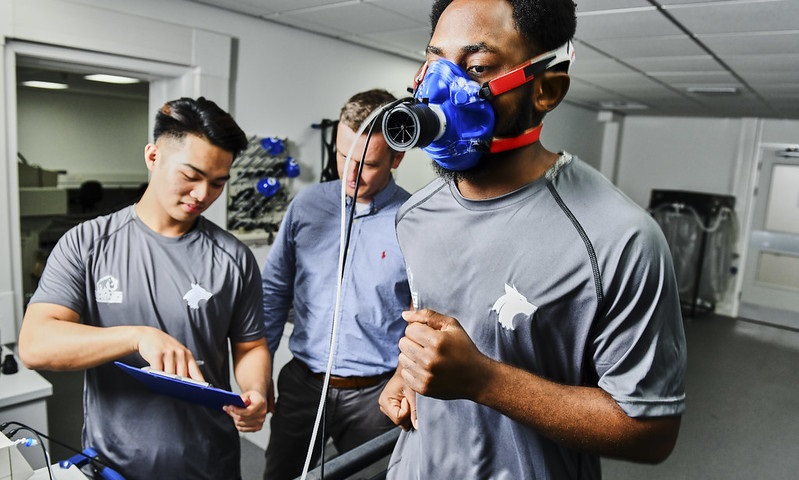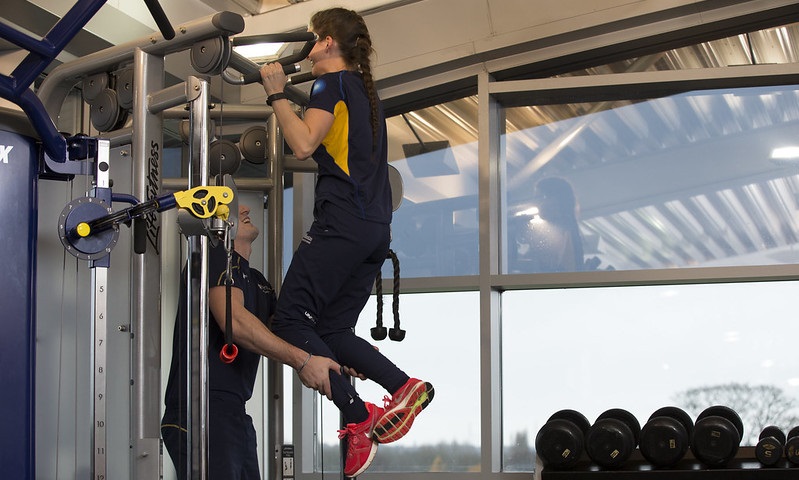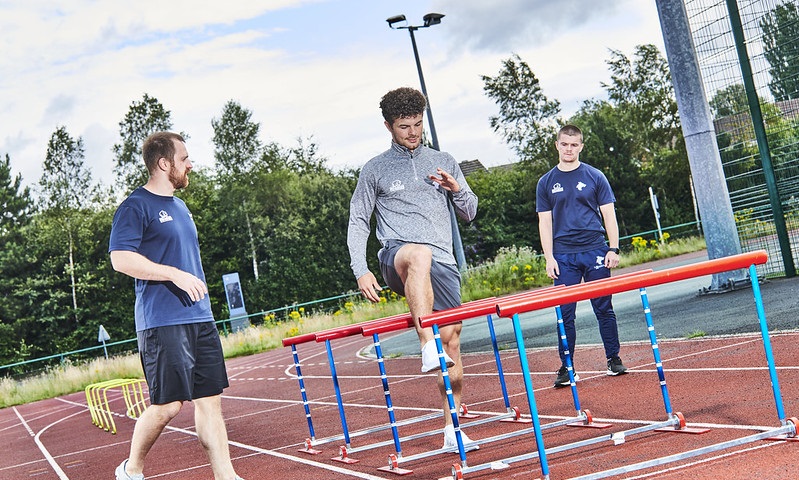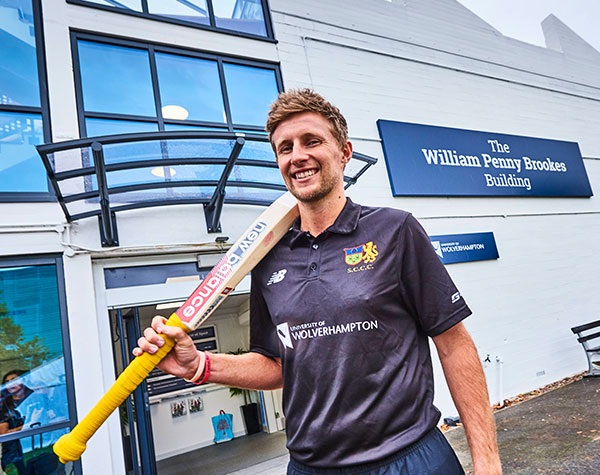
The Sports Sector
Studying sport at the University of Wolverhampton can take you into a range of exciting job roles. Whether you’re interested in teaching, coaching, instructing, offering sports therapy, or numerous other career choices, this industry is hungry for your unique skills and contributions, with opportunities in the UK and abroad.
Participating in sport, at any level, develops your leadership and communication skills in a way that very few other subjects can claim. Studying a sports-related subject is a great investment in your future, and we believe we offer a great place to take your first steps into a graduate career in sport.
According to Sport England, sport and physical activity contributes almost £40 billion to the British economy each year, directly through job creation, and indirectly by reducing healthcare costs due to a healthier population and reducing crime. Graduates of sports courses enter a wide range of job roles, including those as coaches, instructors, and education professionals.
Based on the latest Graduate Outcomes survey, the most common career for our sports graduates is work in education, followed by sports coaches, fitness and wellbeing instructors, officials, and therapy professionals. Fifteen months after graduating, 49% of the graduates surveyed were working full-time, 14% part-time, 15% working and studying, and 11% were in further study. Only 6% were unemployed, which included those due to start work.
Types of careers in sport
There are many different sporting careers that graduates of a sport-related qualifications can enter into. Here are just some of the roles you could take on after studying with the University of Wolverhampton.
A football coach develops the abilities, playing skills, and motivation of football teams and their players.
Physical Education (PE for short) teachers work in schools and colleges, teaching young people about fitness and sport.
Sports scientists help athletes and sport players to improve their sporting performances using their knowledge of the way the human body works.
Leisure/sport centre managers manage and supervise the running of leisure/sport centres.
A health trainer aims to help people develop healthier lifestyles by promoting healthy choices and habits.
Coaches teach skills and techniques to both teams and single players.
A sport development officer organises projects, programmes, and training events to encourage people to take part in sport activities to improve their overall health.
A sports physiotherapist helps diagnose and then treat health problems and injuries sustained due to sport.
A fitness instructor plans and organises exercise regimes to promote fitness and health for their clients.
/prod01/wlvacuk/courses/media/idorenyin/sports-landing-HALO.jpg)
Alumni stories
Short videos to give you a flavour of studying sport
Ground-breaking research
We’re really proud to be the University of Opportunity, with a history of profession-orientated sports courses taught in our world-class facilities. We've achieved so much, including receiving an Athena SWAN Bronze Department Award in recognition of our work to support gender equality. We're proud of our students who, as pro-athletes, have represent Team GB in competitions such as the Olympic and Commonwealth Games, and those who have gone on to careers as teachers, community engagement professionals and running businesses in coaching, therapy and leisure.
Our vibrant student community is supported by the Sport and Physical Activity Research Centre (SPARC). Students benefit from lectures provided by experienced and internationally-recognised researchers. The curriculum features our published research - such as work on bone mineral density, the role of vitamin D, and the positive benefits of exercise to health - research findings which have saved lives and reduced the likelihood of life-changing injuries. By ensuring we stay at the forefront of developments, we can share best professional practice with our students.
We have hosted international sports events and Olympic and Paralympic athletes. Our body composition and bone density suite is used by British Gymnastics, British Judo, Aston Villa Football Club and Birmingham City Football Club.
We provide the perfect space for your studies: a dynamic learning environment with experienced and accredited staff who work with elite athletes (eg. Olympic judo players and academy players from professional football clubs), NHS patients, community-based sports organisations and school groups. You will also benefit from the expertise of our motivating, high-level sports coaches who work with our University Sport teams.
Our sports degree courses
Our links with industry
We have a history of delivering sector-leading sports courses in partnership with the major sporting organisations across the Black Country and West Midlands. Our highly-skilled graduates are in demand across the world. The University is proud of its links with teams and organisations both regionally and nationally. Our official partners include:







The future of the sporting industry in the Black Country, the UK, and across the world is bright. Sport is popular everywhere, and there are many upcoming opportunities and events gearing up to take place in the West Midlands.
The Commonwealth Games 2022 in Birmingham showcase the region’s fantastic sporting facilities and venues on an international scale. High-profile events like this often open up further opportunities, meaning that it is likely that other teams and organisations may be attracted to the West Midlands.
On our doorstep, local football teams such as Wolverhampton Wanderers continue to grow; T20, the shorter and more popular version of cricket is played at Edgbaston; and the University has formed a partnership with Sandwell Leisure Centre, which will give our students access to their facilities.
Fantastic facilities
Fantastic facilities
Sport is a wide and varied industry, so qualifications aren’t always necessary in some areas whereas in others they will be essential. Work experience counts for a lot in the sports industry, so taking a course that will result in a qualification may also give you access to first-hand experience in the area you are most interested in dedicating yourself to. At other times, you may need an undergraduate or even postgraduate qualification.
If you are passionate about sport, there is simply no better career area to pursue. Depending on what area of the sports industry you become involved with, the perks could include gaining access to event tickets, equipment or clothing, seeing the progress of students and athletes you work alongside or coach, and simply earning your living doing what you love.
There are many different sporting careers that graduates of a sport-related qualifications can enter into. Here are just some of the roles you could take on after studying with the University of Wolverhampton.
Football coach – £18,000 to £28,000 – A football coach develops the abilities, playing skills, and motivation of football teams and their players.
PE teacher – £25,714 to £41,604 – Physical Education (PE for short) teachers work in schools and colleges, teaching young people about fitness and sport.
Performance sports scientist – £20,000 to £60,000 – Sports scientists help athletes and sport players to improve their sporting performances using their knowledge of the way the human body works.
Leisure/sport centre manager – £18,000 to £37,000 – Leisure/sport centre managers manage and supervise the running of leisure/sport centres.
Health trainer – £18,700 to £28,500 – A health trainer aims to help people develop healthier lifestyles by promoting healthy choices and habits.
Sports coach – £18,000 to £28,000 – Coaches teach skills and techniques to both teams and single players.
Sports development officer – £18,000 to £30,000 – A sport development officer organises projects, programmes, and training events to encourage people to take part in sport activities to improve their overall health.
Sports physiotherapist – £24,000 to £45,000 – A sports physiotherapist helps diagnose and then treat health problems and injuries sustained due to sport.
Fitness instructor – £14,000 to £25,000 – A fitness instructor plans and organises exercise regimes to promote fitness and health for their clients.
Work experience in the sports sector is often highly prized, due to the practical nature of many roles. There is no set amount of experience required for a sports job, but if you study with the University of Wolverhampton you will gain access to our many sporting partners and the opportunity to contribute alongside them, gaining valuable experience throughout.
Our sports courses provide you with opportunities for experience throughout your time at the University and after. Courses include placements, work experience, and site visits, while a sandwich degree includes a full year in industry.
You’ll find the University to be a hub for both on-campus and external events, with the added choice of sports-related clubs, societies, and volunteering in local primary and secondary schools. The campus frequently hosts tournaments and events, and organisers will all be grateful for assistance from students studying for degrees in sport, giving you ample chance to build your CV while you’re with us.
We also have a dedicated Careers, Enterprise and the Workplace team who help you, whatever stage of your course or career you have reached.
At the School of Sport, we provide a number of different routes and qualifications to help you attain a career in sport, and take pride in the flexibility we offer. Many of these are accredited, giving your qualification the approval of a professional body which can benefit your career.
If you have a course you would like to study but don’t have the experience or qualifications needed for the entry requirements, you can take a foundation year course to prepare you. This gives you the opportunity to increase your knowledge of the area you wish to study, providing the “foundations” of what you’ll need for the course.
Our sports degrees come with the option of an optional sandwich placement year, which you may also be able to undertake abroad. We also offer postgraduate Master’s-level sports-related courses, meaning that if you want to continue studying with us you can do so after you have gained your degree.
Yes, you can apply to receive support up to a value of £4,500 over three years with our WLV Sports Scholarship, becoming a WLV Sports Scholar.
Our WLV Sport Scholarship is intrinsically linked to our focus sports (football, basketball, judo, futsal and netball); athletes outside of these sports are still considered and more favourably if their sport is recognised within the BUCS competitive framework.
Home to British Judo
The British Judo Association’s Centre of Excellence based at our Walsall Campus, sits alongside the our sports education and research facilities that support the wide range of sports degrees on offer.
Recent investment has extended specialist sport facilities to support Olympic and Paralympic athletes based in the West Midlands, such as student Chelsie Giles, who won bronze at Tokyo 2020. The new development includes dedicated physiotherapy facilities providing world-class science and medical support to athletes as part of the British Judo Association’s partnership with the English Institute of Sport.
The next focus for the Centre is the Birmingham 2022 Commonwealth Games, and the partnership provides further endorsement for the Walsall Campus as a place of sporting excellence for elite athletes.
Take the next step
*£39 billion contribution to British economy pa from sector *Sport England
*9% of graduates employed or in further study 15months after graduating *Graduate Outcomes report, July 2021


/prod01/wlvacuk/media/departments/digital-content-and-communications/images-2024/240328-Varsity-Line-Up-Resized.jpg)
/prod01/wlvacuk/media/departments/digital-content-and-communications/images-18-19/220325-Engineers_teach_thumbail.jpg)
/prod01/wlvacuk/media/departments/digital-content-and-communications/images-2024/240515-Spencer-Jones-Award-Resized.jpg)
/prod01/wlvacuk/media/departments/digital-content-and-communications/images-2024/240320-Uzbekistan-Resized.jpg)
/prod01/wlvacuk/media/departments/digital-content-and-communications/images-2024/240229-The-Link-Resized.jpg)
/prod01/wlvacuk/media/departments/digital-content-and-communications/images-2024/240516-Andy-Gibson-Resized.jpg)
/prod01/wlvacuk/courses/media/Sports-Student---coaching.jpg)
